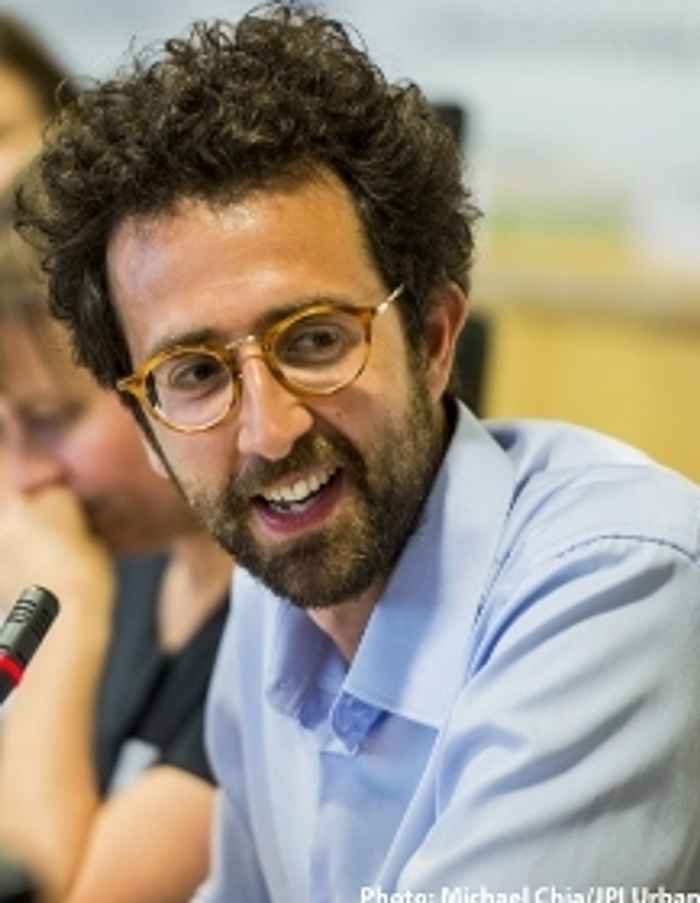Degrowth will make healthier and happier cities
19 January 2023


What is the problem of current economic growth model?
‘There is an increasing amount of evidence that our current economic system and growth- led urban development has had dramatic social and environmental impacts’, tells Savini, ‘and there are absolutely no signs, despite all technological innovation, that economies could grow without these negative effects.’ Savini stresses that in highly developed countries like the Netherlands economic growth did not translate in increasing life quality. ‘We even see that in countries with a high average income per person, people are unhappier and mentally unhealthier than in countries with lower incomes. In a city as Amsterdam mental problems like loneliness, stress and burnout have only increased in the last decade while the perception of quality of life decreased.’
How does the alternative model of degrowth look like?
‘We basically need to reorganise our economy in order to downscale material demands, reduce the environmental impact and while doing that improve the wellbeing of people’, explains Savini. ‘This means moving from an economy that thrives on material demand and consumption to an economy that thrives on health, care, wellbeing, family, relationships and friends.’ According to Savini’s research latter are the elements of life people really value, ‘much more than a new kitchen or a new car’. ‘Decreasing to increase, is a fundamental change in the way we think of ourselves and society.’
Why should urban planners play a central role in degrowth?
‘Problems are concentrated in cities and building is the urban sector that contributes most to environmental degradation and waste. Spatial planners organise urban space and regulate the built environment. They can break with the cyclical process of growth and expansion. They can help reducing material demands and increasing wellbeing by planning environments not around consumption, but around health and wellbeing. The pandemic taught us how important space for healthy living is, with good air quality and green spaces.'
Can degrowth bring enough wealth?
Savini calls it a common critique that degrowth would send us back to the stone age. ‘But there are many calculations by economists on human needs and decent living standards, and studies that asked people themselves about these standards, that show that we can live with much less and still live well. For example a study in France showed that people would be happy with only about 60% of the current GDP.’
The big elephant in the room is redistribution of space and wealth
We still have enough when we have less, but the big elephant in the room is redistribution says Savini. ‘The problem of today is not that there is not enough for all, but that some people do not have enough, and a few people have a lot. The gap is huge, billionaires having over a million times more than the average person.’
How to make this big shift happening?
We should start with experiments in cities says Savini to try out what can be successful, ‘and we need a political agenda’. He sees how cities like Amsterdam are already using concepts that relate to degrowth. ‘In Amsterdam they now speak of “growing within limits”. So the city recognizes that there are limits to growth. It does however remain unclear what they mean by growth; economic, demographic, personal? I would rephrase that as “living well within limits”.’
Another step is that we have to let go of activities that are environmentally harmful and do not contribute to wellbeing, ‘such as owning multiple cars, buying useless objects or flying short distance for useless meetings’. ‘As other scholars have shown, a marginal tax rate on top incomes would already be enough to allow us to do so.’
What is the main obstacle to degrowth?
Savini calls the current ideology of growth the main obstacle to degrowth. ‘We still associate economic wealth with the overall improvement of our lives.’ To change this frame education plays a key role; education of our children in schools but also the education of planners. ‘We need to learn our students to think out of the box.’ Another barrier calls Savini the tough dependencies on current structures and how we have built cities so far. ‘We need to retrofit these structures and spaces and change them to give space to a new economy.’
Join the debate
On 8 February you can join a live debate at SPUI25 on the questions that are central in the new publication Post-growth planning: cities beyond the market economy: what would a degrowth agenda for cities look like? What would degrowth mean for Amsterdam, a city that wishes to thrive within planetary boundaries? More info on this debate